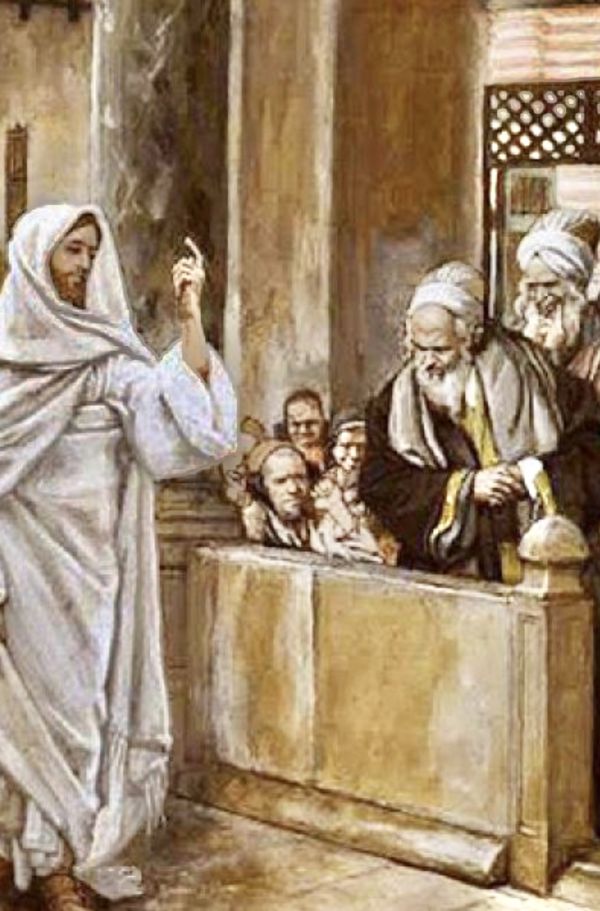The authority of Jesus and ours
(Mk 11:27-33)
«By what authority do you do these things? Or who gave you this authority to do these things?» (Mk 11:28).
In the traditional Judaizing milieu of the early communities, questions bounced around about Christ's authority to lay siege to the ordinary religious system, and his distinguishing himself even from recognised prophets like the Baptist.
The only answer: the 'power' of God expressed in the sign of the times - by fermenting consciences.
This in Rome, because of the serious crisis of the civil war in the late 60s. In Palestine, because of the Jewish revolt and the destruction of the holy city.
Jesus' mission was not a regular one: he disconcerted the atmosphere, so his sharp, living Word had to be circumscribed at all costs.
Such bold behaviour would have seemed irreverent to political and spiritual leaders, even if adopted by the expected Messiah himself.
And a landless man could only be a false claimant....
The religious leaders faced by the Lord - entrenched in established patterns of thought and strategies - were always content to fit Heaven into closed dishcloths.
Even the faithful of the Roman communities seemed to be under the tutelage of interests, roads, words and gestures imposed by the imperial climate.
Mk tried to help his small churches: they had to continue fearlessly, and not be seduced by official religious practices, nor polluted by corrupt imperial ideology.
The evangelist also seems to suggest to the faithful in Christ to avoid punctilious diatribes with the representatives of a world only apparently stable - on the contrary, destined to implode on its own contradictions.
After the expulsion of the sellers and profaners from the Temple (Mk 11:15-17), Jesus' fate is sealed (v.18).
But through his intimates, the new Kingdom - now unencumbered by fetters - must be proposed in the spirit of selflessness, and as a Surprise.
Only the Father can manage seed, roots and development.
No man can give “permission” for any person to be reflective and free from conformity.
There is an unpredictable path even for those accustomed to being directed in every affair. While guarantees clutter the minds and clog the paths that then lead to frontier experiences.
The seed carried by the wind of the Spirit makes its own plant, which does not necessarily resemble the surrounding ones: it does not bind itself in its particular expressiveness, and also flies 'out of bounds'.
In this way, we manifest independence and freedom, because Jesus himself demonstrated it - overriding all expectations and intentions.
Sooner or later, the bosses would have been dismayed by those who cannot stand ratifications, finally acknowledging their ignorance.
They would have run aground permanently, on their own - even by reason of their will not to expose themselves (vv.31-33a). Tactical perplexity, revealing unbelief - lukewarmness - total lack of Faith.
In short, the silence of those who are in Christ, and who appreciate a more attentive and less outward-looking Church, is often the right echo of God, more eloquent than many brilliant disquisitions (v.33b).
Thus Jesus avoids the ambiguity of mental restriction or evasive semantics: in Him, the non-answer to leaders is transformed into a question.
The Lord remains silent, but without misleading the question.
[Saturday 8th wk. in O.T. June 1, 2024]












